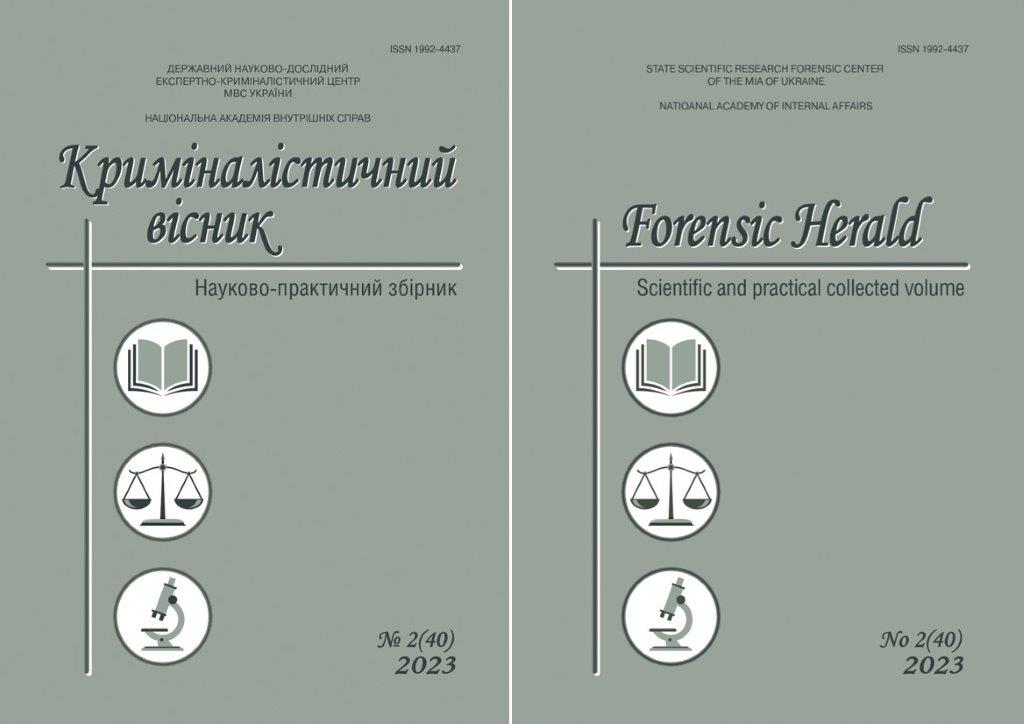DISAGREEMENT WITH THE EXPERT'S OPINION AS A RESULT OF THE EVALUATION OF EVIDENCE BY INTERNAL CONVICTION
DOI:
https://doi.org/10.37025/1992-4437/2023-40-2-16Keywords:
criminal procedure, evidence, proof, evidence assessment, expert opinion, disagreement with the expert opinionAbstract
Abstract. Based on scientific sources and law enforcement practice, the article highlights certain aspects
of disagreement with the expert's opinion. The author analyses the guarantees provided to the expert's opinion
against the abuse of evidence by the subjects of evidence evaluation; interrogation of an expert as one of the ways to
clarify (specify, explain) the content of the expert's opinion; appointment of an additional or repeated examination
to evaluate the conclusions of the previous forensic examination; reviews of forensic expert opinions in criminal
proceedings; the subject of engaging a forensic expert to conduct a forensic examination; verification of the expert's
opinion as the basis for the formation of an internal conviction in the form of agreement or disagreement with the
expert's opinion. Methodology. General methods (induction, synthesis, system method), as well as special scientific
methods (special-legal method, comparative-legal) are used. Scientific novelty. The article describes disagreement
with an expert's opinion as a result of evaluation of evidence based on internal conviction, and defines the term. The
authors identifies the procedural and intellectual properties which form such a disagreement with an expert's opinion.
Results. It is proved that disagreement with the expert's opinion has both procedural and intellectual properties. The
procedural ones are defined by the Criminal Procedure Code of Ukraine. They consist in the fact that disagreement
with an expert's opinion is the result of an assessment of the evidence contained in it as an element of the evidence
process; disagreement with the expert's opinion must be motivated; the motivation must be a part of the relevant
decision, ruling, or judgment; accordingly, the subject of such assessment is an investigator, inquirer, prosecutor,
investigating judge, court (person or body conducting the proceedings). The intellectual properties of disagreement
with an expert's opinion are the result of a mental activity of summarizing the evidence and comparing it with the
expert's opinion on the basis of synthesis and analysis. Such properties are based on the experience of the person
evaluating the evidence in the expert's opinion. The authors argue that procedural and intellectual properties do not
always match. Disagreement with the expert's opinion as a result of intellectual activity may be made by the defense
(as well as by anyone who has read the opinion). There are no procedural mechanisms for such a disagreement under
current law. However, in case of disagreement with the expert's opinion, the defense party has the right to file a motion
to declare the evidence(s) inadmissible, request an expert examination (repeated, additional), independently engage
another expert on contractual terms, request that the expert be questioned by the investigating judge (during the
pretrial investigation), the court, and express its disagreement in a speech or remarks.



